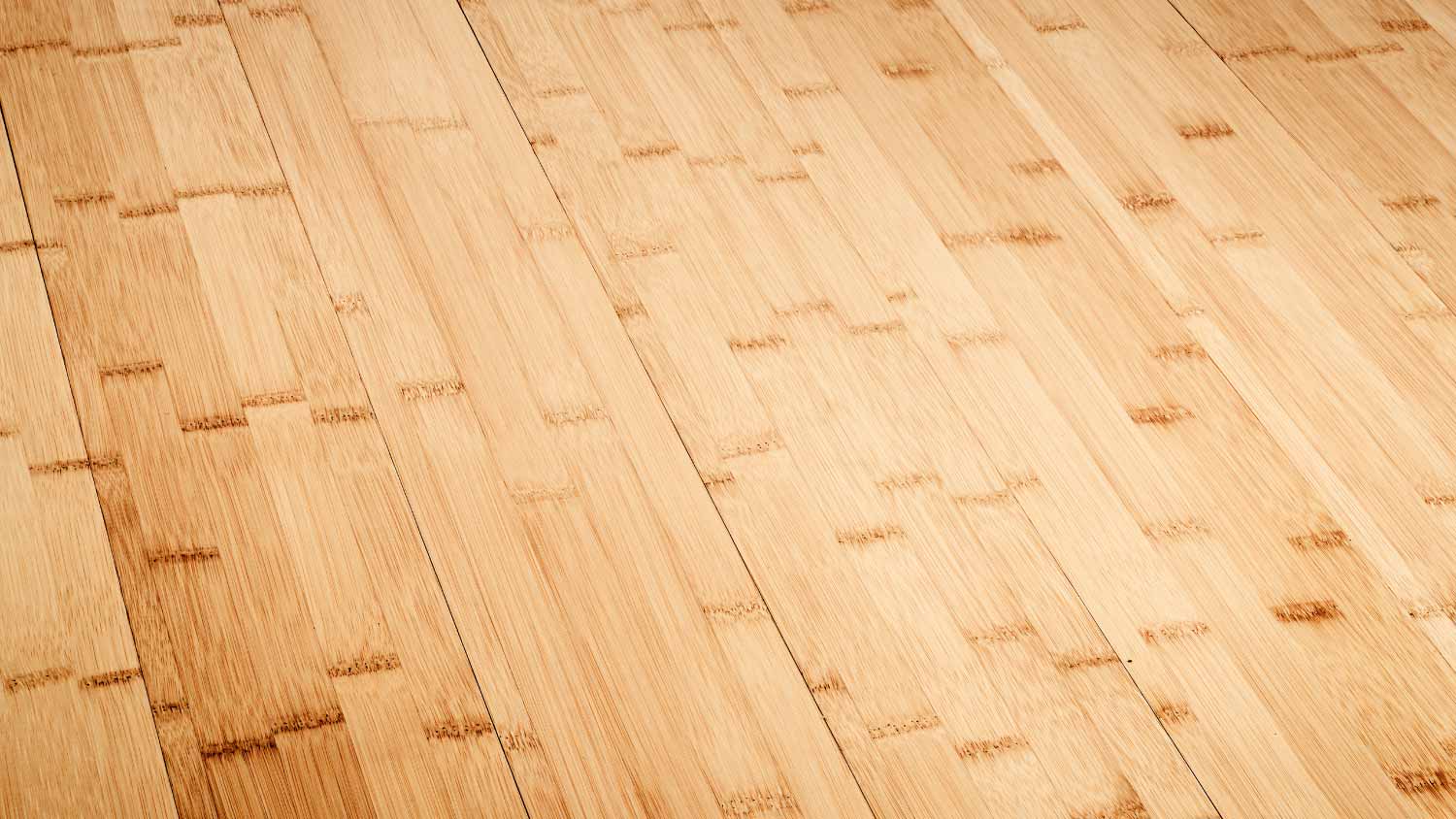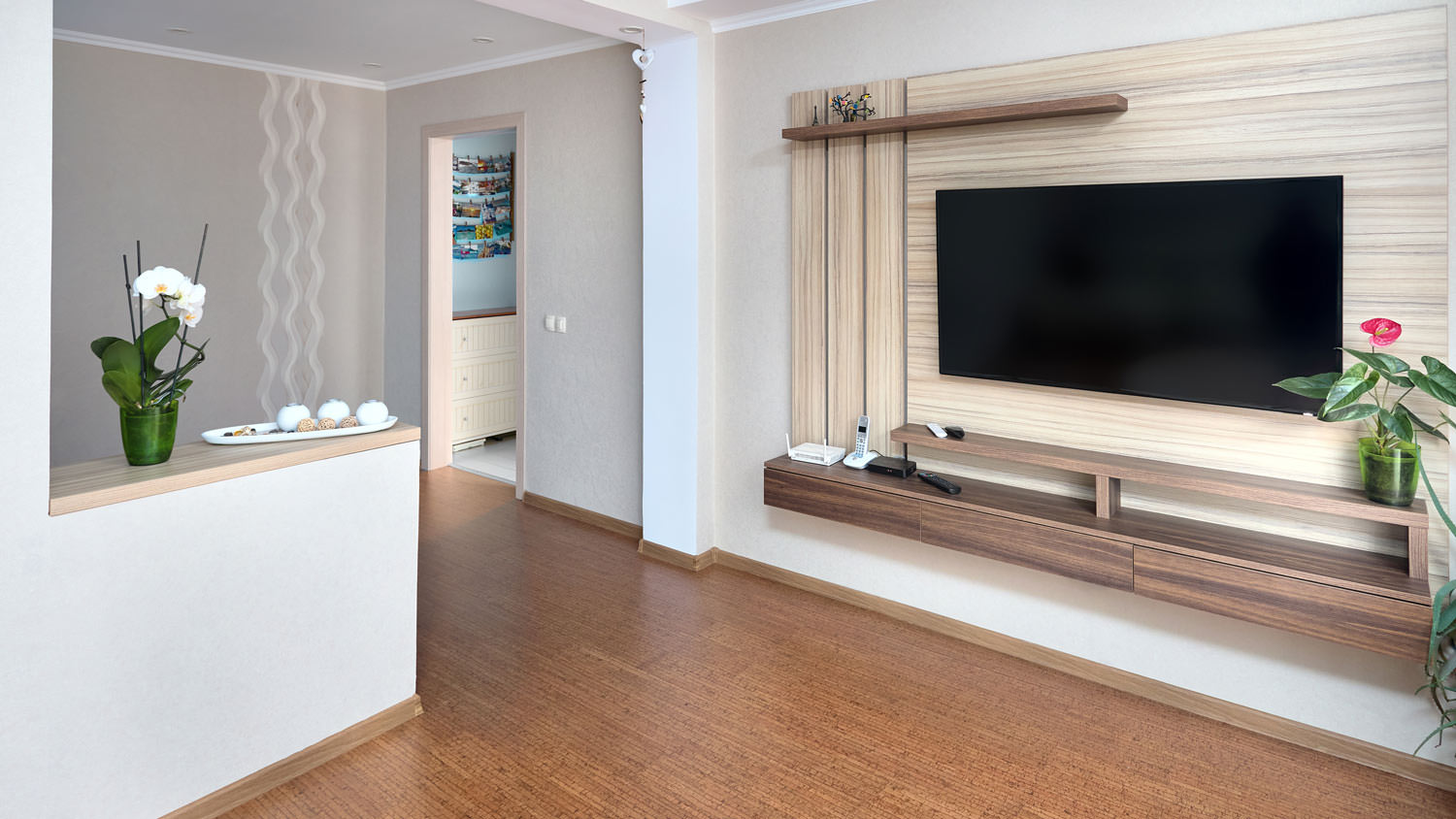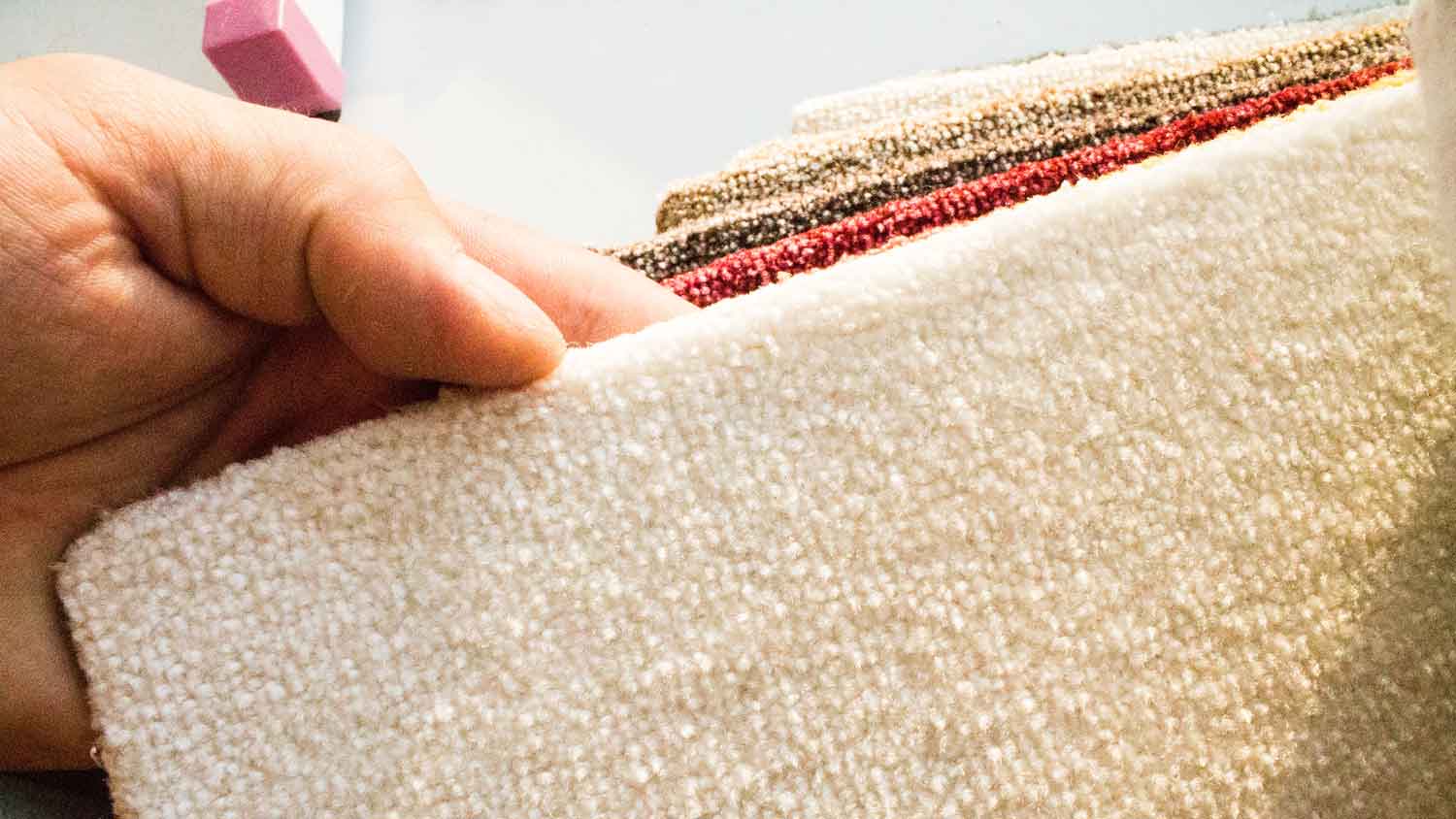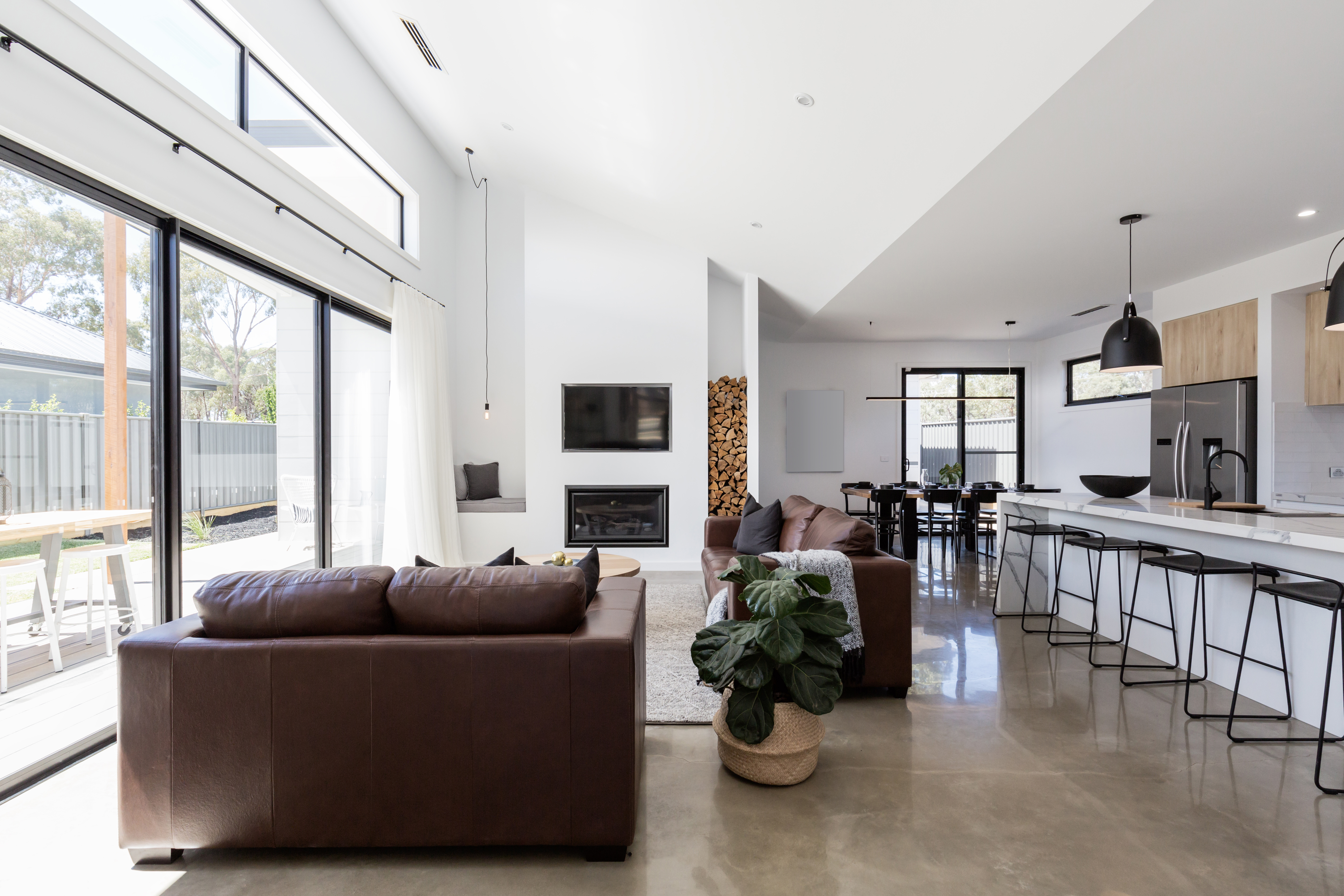
Discover vinyl flooring installation costs, including average prices, key cost factors, and tips to save on your new floors.
Smooth over your rough patches by refinishing your bamboo floor


Bamboo flooring can be refinished when scratched or dented.
Engineered bamboo flooring can be refinished if the veneer is thicker than two millimeters.
A handy homeowner may be able to DIY bamboo floor refinishing, but we recommend leaving it to a pro.
Refinishing your floor costs an average of $1,890.
Bamboo flooring is an attractive and sustainable alternative to hardwood floors. It’s made from bamboo, a fast-growing grass that can be harvested every five to seven years. There are several types of bamboo flooring to choose from, and each varies in its look and durability. But can bamboo flooring be refinished, or should it be replaced once damaged? Learn about refinishing bamboo so you can make an informed decision about your flooring material.

Engineered bamboo floor has a plywood core with a layer of bamboo veneer on top. This makeup means engineered bamboo flooring is cheaper than solid or strand-woven varieties but less durable. While it’s possible to refinish engineered bamboo floors, you can only do so if the bamboo veneer is thicker than two millimeters.
If you’re unsure how thick your engineered bamboo floor veneer is, consult a professional before attempting a refinishing project. Sanding too-thin veneer could remove the bamboo layer entirely, and you’ll have to replace the floors.
Solid bamboo floors are made with either horizontal or vertical strands of bamboo stalks glued together to create flooring planks. Strand-woven bamboo floors are constructed using thin-cut bamboo fibers glued together and pressed into blocks using heat and pressure. Both types of bamboo flooring can be refinished.
Strand-woven bamboo is the most durable type of bamboo floor. It’s much harder to damage than solid or engineered bamboo, so you’ll need to refinish it less often. Solid bamboo is slightly more susceptible to scratches and dents and may require more frequent refinishing.

Although bamboo floors are not hardwood, the refinishing process and costs are similar. Refinishing hardwood floors costs $1,100 to $2,670, with an average of $1,890, so you can expect to pay within this range to refinish bamboo floors. If the flooring is beyond refinishing, new bamboo flooring costs $1,750 to $5,000 to install, with an average cost of $3,400.
Refinishing bamboo floors is a labor-intensive task that is unsuitable for novice DIYers. However, it may be achievable for homeowners with DIY experience and the right tools. Refinishing bamboo floors involves gently and carefully sanding the top layer. However, bamboo’s hardness can make it difficult to sand without professional-grade equipment. After sanding, the floors must be buffed, stained, and sealed. Your floor may look uneven if you don’t complete all these steps correctly.
A professional flooring company near you can inspect your bamboo floors and advise you on how to proceed. Professionals have refinished hundreds of floors and know precisely how to restore your bamboo floor to a like-new state. Professionals also come with licenses and insurance to protect you financially if there’s any damage to your home during refinishing. And they know how to install bamboo flooring if you need to replace it. Unless you have extensive experience with this project, leave bamboo floor refinishing to the pros.
From average costs to expert advice, get all the answers you need to get your job done.

Discover vinyl flooring installation costs, including average prices, key cost factors, and tips to save on your new floors.

Updated flooring can make any room in your home feel brand new. Explore flooring installation costs in Charlotte, NC, from materials to labor costs.

Updated flooring can make any room in your home feel brand new. Find out flooring installation costs, from materials to labor costs.

Discover the cost to install indoor-outdoor carpet. Learn about average prices, key cost factors, and tips to save on your next flooring project.

Decorative baseboards add sophistication, but they’re often expensive. These are the best baseboard alternatives for a high-end look without the high-end price!

The best flooring to install over concrete can handle the material’s porosity. From vinyl to tile, this guide will run you through the best options.